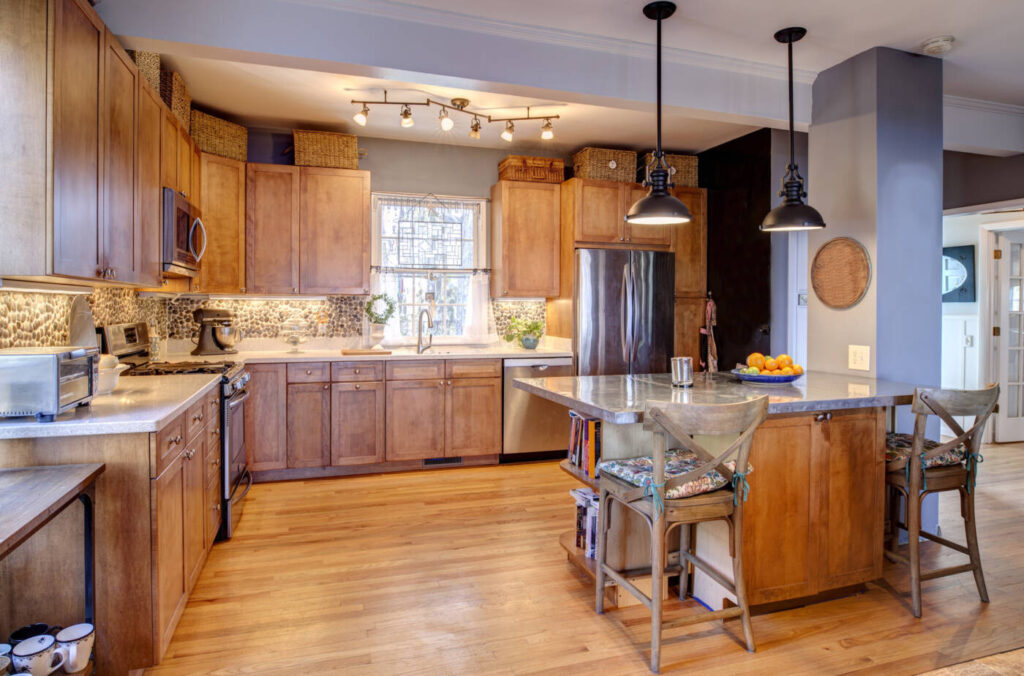What to Expect from Your First Home Appraisal
 You’ve just had an offer accepted on a house. You’ve even had the place inspected by a professional inspector. But there’s still one more thing that has to happen: the house has to be appraised.
You’ve just had an offer accepted on a house. You’ve even had the place inspected by a professional inspector. But there’s still one more thing that has to happen: the house has to be appraised.
Seeing as this is your first real estate transaction, however, you’re unsure of what a home appraisal entails. As such, you’re looking for answers.
Rest assured, you’ve come to the right place. Here’s what to expect from your first home appraisal.
What Is a Home Appraisal?
A home appraisal is an independent assessment of the value of a house. It’s performed by a third-party entity and helps ensure mortgage lenders that the amount of money they’re lending is in line with the house’s current state. Most mortgage lenders require a home appraisal prior to closing.
While appraisals are performed primarily for the benefit of the mortgage lenders, they can benefit buyers as well. For instance, if an appraisal shows that the value of a house is much lower than what the contract specifies, the buyer might decide to back out of the transaction.
How Much Is a Home Appraisal?
The cost of a home appraisal will fluctuate based on a number of factors, such as the area in which the appraisal is being done and the size of the home, as well as the specific entity that is performing the appraisal.
That said, most appraisals cost the buyer somewhere between $300 and $450. In bigger cities like New York or Los Angeles, it’s not uncommon to pay up to $700 and even $800, however.
Who Selects the Appraiser?
Because the appraisal is performed for the benefit of the mortgage lender, the lender typically selects the appraiser. This is to ensure that the buyer doesn’t hire a biased appraiser.
What Do Home Appraisers Look For?
Home appraisers will look for a variety of things in a new or used property. These include:
The Roof
Your home appraiser is sure to take a good look at the home’s roof, assessing its age, quality, and material. Roofs cost thousands of dollars, so the condition they’re in can have a large effect on their home’s value.
While the structural components of the roof are most important, the exterior of the roof can have an effect on the appraisal as well.
The Foundation
Perhaps the most important aspect of the appraisal is the inspection of the foundation. If a home’s foundation is compromised, it can put the entire home at risk. As such, finding a bad foundation during an appraisal could make the home’s appraised price far less than the contract price.
In a good many cases, it’s the foundation that sullies the deal. Lenders are hesitant to lend money for a home that might soon need structural repairs. Potential buyers are hesitant to mortgage their futures on homes that might not make it to the next decade.
The Home’s Age
The age of the home can have an effect on its appraisal value as well. As such, home appraisers will inspect various components of the home to get an idea as to when it was built and when updates were made.
The Surrounding Property
The property that surrounds the home will have an effect on the appraisal value, also. For instance, if the yard is prone to flooding, the appraisal value is bound to be lower than it would be otherwise.
Number of Rooms
Another thing that the appraiser will assess is the number of rooms in the house. Generally speaking, the more rooms a house has, the higher its appraised value. Note, however, that square footage will be factored in here as well.
Factors That Cause Appraised Values to Be Lower Than Contract Values
When it comes to the end result of an appraisal, you hope for the appraised value to be close to, equal to, or greater than the contract value. If it’s substantially lower, the lender might not loan out the necessary amount of funds. Or, the prospective buyer might back out of the deal entirely.
Wondering what might result in the appraised value being substantially lower than the contract value? It’s generally the following factors.
The Contract Value Being Far Above Standard Market Value
One of the most common factors leading to value disparities in the contract value and the appraised value is the contract value being far above standard market value, or the price that one would typically pay for such a property.
This occurs when there’s competition in the housing market, and prospective buyers are bidding against one another in order to “win” a particular house. It can drive up the value of the home substantially, creating a gulf of difference between the appraised value and the contract value.
The Appraiser Lacking Experience
In some cases, it’s appraiser error that makes the difference. For instance, if the appraiser is new to the job, or if the appraiser is new to the area in which the appraisal is being performed, he or she might make critical mistakes that drive down the value of the property.
If you believe that this happened during your appraisal, you should take up the issue with your lender and see if you can have another appraisal done. It could be the difference between you getting the house or not.
Issues With the Home
The most common causes of value disparities are issues with the home. For instance, there might be a crack in the foundation. Or, the roof might be older than anyone thought.
There could also be problems with the electrical system, plumbing system, or anything else, for that matter.
A Home Appraisal Is a Necessity for Borrowers
If you’re borrowing money from a lender, your new house will be subject to a home appraisal. That’s true whether it’s a newly constructed house or an already existing house. So, be ready not only to cover the home appraisal cost but to react to potential changes in the specifics of the real estate transaction.
Are you looking to build a home now? If so and if you’re in the DeForest, Wisc., area, we here at Design Custom Homes have you covered.
Contact us now to discuss your design!
